Frequently Asked Questions
I have attempted to answer some of the frequently asked questions (FAQs) potential coaching clients raise. If you do not find the answer(s) you are looking for then please do not hesitate to contact me.
Do you select clients based upon ability?
No. I hear of lots of coaches who only coach the best riders or go out of their way to 'poach' good riders off other coaches. For me, the most important part of coaching is the process. That is, I like to help people improve regardless of their ability. This is why I work with the full spectrum of athletes from novices to world class competitors.
Do I need a power meter for cycling training?
You do not need a power meter. The only technology I insist on you adopting is a Today's Plan subscription. Today's Plan helps me keep track of all my athletes and provides a simple way for you to share training data with me. That data could be sophisticated like power or blood oxygenation but it could be as simple as a session rating of perceived exertion (sRPE) or the talk test. I have trained athletes to a very high level using both simple and sophisticated technologies.
I don't live in the UK can I still be coached by you?
Yes. I have coached athletes living in many different countries, both professional and amateur. The only requirement is that we can communicate in English.
I have never been coached before, what can I expect?
My goal is to tailor the coaching to your needs. As I have stated elsewhere on this site, this is why I tailor even the most affordable plans to your needs. When I start working with a new athlete I take time to understand what works well and what doesn't. We will go through the process of goal setting and I'll develop this into an effective training plan. I have my preferred methods but I don't stick to them rigidly as I find it is important to be adaptable. Everyone is different and sports science doesn't provide an answer to every question. This is why it is important to analyse the training and continually work towards optimising the prescription. People stick with me for many years due to this highly personalised approach.
Do I need to do lab tests?
I have completed hundreds of lab tests over the years and still do if I feel it is necessary. However, I have come to the conclusion that it isn't all it is cracked up to be. I hope to write a blog post on this to explain more. Personally, I much prefer field data (tests out on the road, trail or track) and training data to monitor fitness. Lab tests provide a small snapshot in time and can be misleading, whereas field data paints a picture of what is happening day by day. I know many coaches sell their scientific credentials and make lots of money through lab tests. But 20 years as a sports scientist has taught me that there are often better approaches.
Why haven't I heard of you?
Good question! When I started out coaching it was because I was doing research and got persuaded by some of the riders I was working with to move into coaching. It turned out that I had a knack for it and my reputation grew through word of mouth. I've never really shouted about my successes and don't have a strong social media presence. It has always seemed a bit distasteful to me to spend copious hours shouting about how good you supposedly are! I wanted my work to speak for itself and it pretty much has. I recently decided to leave my teaching job and become a full-time coach so this is why I have now developed my website. However, most of my business still comes from personal recommendations.
How can you coach cycling and motorcycling?
I became a cycling coach because I was doing good research in cyclocross and the riders encouraged me to take the plunge. As word spread and my riders gained good results I was approached by other athletes. I took on road riders and then a world class time trial competitor. When Alex Dowsett took the hour record under my supervision a world class triathlete noticed and approached me. Gradually I moved into mountain bike, Gran Fondo, track cycling and now motorcycling. But each time I have branched out it's been because people have specificaly asked for my help and each time I've moved into a new area I've gained results.
So why have I been so successful? I believe it is down to my in depth understanding of sports science and coaching and that many of the principles I have learnt are applicable across a range of sports. Within endurance sport there is a lot of commonality so, for example, I am currently working with a marathon runner and the overall approach to training is pretty similar to working with a cyclist. There are elements that are different, of course. The strength training isn't the same for a runner, road cyclist or motorcyclist. But there are similarities and key principles that can be applied. It is my ability to see both the common ground and to understand where there needs to be specificity that makes it possible for me to work across different endurance sports. Clearly I am careful not to spread myself too thin as it pays to specialise. But I have an enquiring mind and can clearly achieve success in a range of disciplines.
